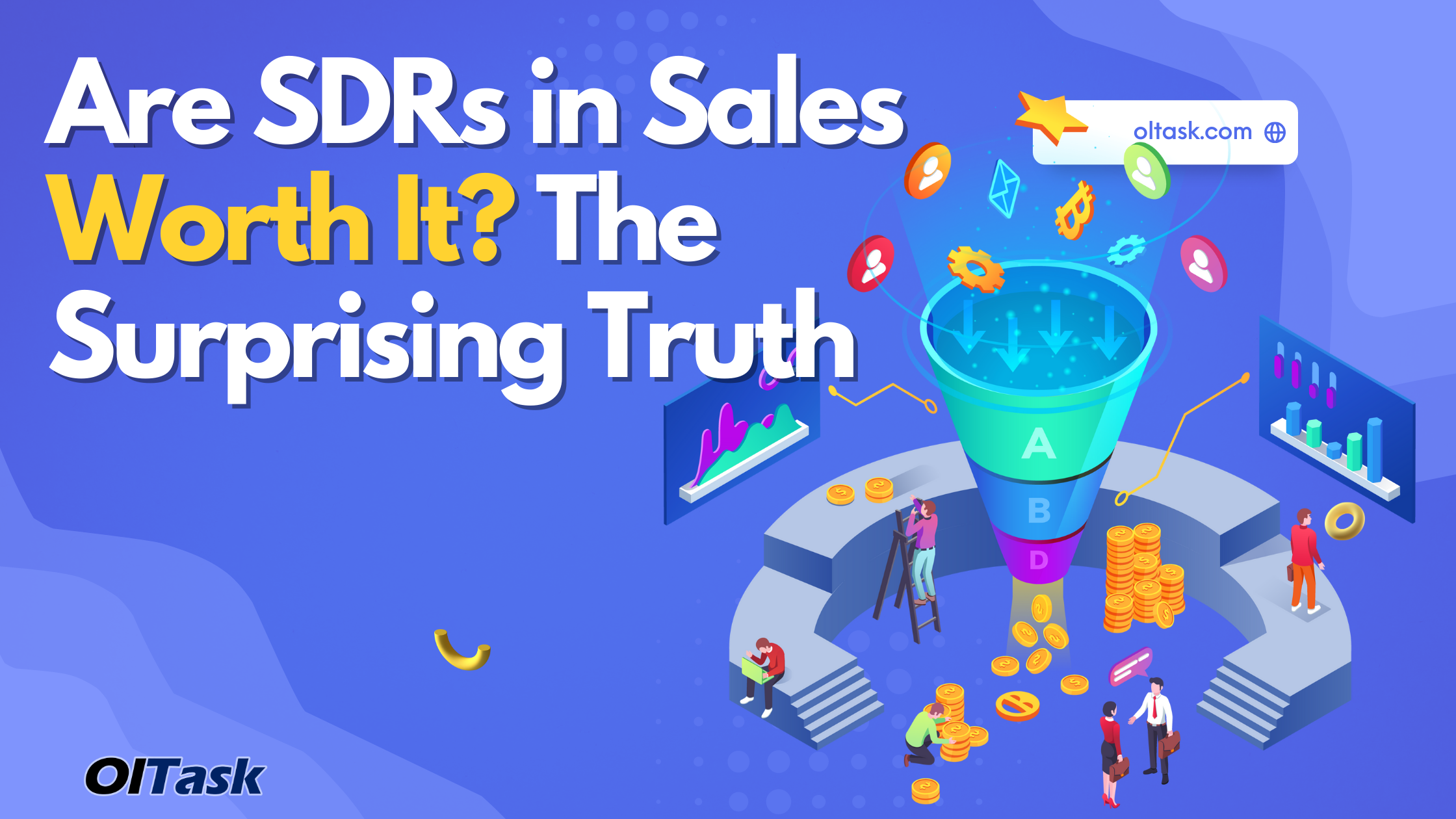Alright, let's dive straight into the world of sales because if there's one thing we all need to know in today's business environment, it's the role of SDR sales. SDR stands for Sales Development Representative, and this is not just another fancy term in the corporate world. It’s a crucial role that drives revenue and growth for companies big and small. Think of SDRs as the modern-day trailblazers, paving the way for successful sales engagements. So, if you're scratching your head wondering what exactly an SDR does, you're in the right place.
SDR sales definition revolves around the idea of finding, nurturing, and qualifying leads for the sales team. These reps don’t just make cold calls; they strategize, engage, and build relationships with potential customers. They’re the ones responsible for turning strangers into prospects and prospects into paying customers. Now, if that sounds like a big deal, it's because it is. SDRs are the backbone of any successful sales operation, and understanding their role can make or break your business.
So, whether you’re a business owner looking to scale your sales team or an aspiring SDR eager to learn the ropes, this article has got you covered. We’ll break down the SDR sales definition, explore the responsibilities, and uncover the strategies that make these reps indispensable in the modern sales landscape. Let’s get started, shall we?
Read also:Chris Isaak Illness The Untold Story Behind The Legend
Who Exactly is an SDR?
Alright, let’s get down to brass tacks. An SDR, or Sales Development Representative, is essentially the bridge between marketing and sales. They’re the ones tasked with prospecting, engaging, and qualifying leads before handing them over to the account executives or closing teams. Think of them as the matchmakers of the business world, carefully pairing potential customers with the right solutions.
But here's the thing: SDRs aren’t just glorified telemarketers. Oh no, they’re strategic thinkers who use data-driven insights to identify the best possible leads. They’re the ones who sift through the noise to find the gems—those high-potential prospects who could become loyal customers. And let’s not forget, they’re also responsible for setting the tone for future sales conversations. In short, they’re the unsung heroes of the sales process.
The Role of an SDR in Today's Sales Landscape
Nowadays, the role of an SDR has evolved beyond just making cold calls. These reps are equipped with tools like CRM systems, marketing automation platforms, and AI-driven analytics to streamline their work. They use these technologies to not only identify leads but also to personalize their outreach efforts. This means no more generic emails or one-size-fits-all approaches. SDRs are all about tailoring their messages to resonate with each individual prospect.
And here’s the kicker: the success of an SDR isn’t just measured by the number of calls they make or emails they send. It’s about the quality of the leads they generate and the impact they have on the sales pipeline. In today’s competitive market, where customer expectations are higher than ever, SDRs play a vital role in ensuring that businesses stay ahead of the curve.
Key Responsibilities of an SDR
Alright, let’s break down the day-to-day responsibilities of an SDR. First and foremost, prospecting is a big part of their job. This involves researching potential customers, identifying decision-makers, and understanding their needs. SDRs spend a significant amount of time building lists of qualified leads, which they then nurture through personalized outreach.
Once they’ve identified the right prospects, SDRs move on to the next phase: engagement. This is where they reach out to potential customers through phone calls, emails, and sometimes even social media. The goal here is to spark interest and start a conversation. It’s all about building rapport and establishing trust with the prospect. And let’s not forget, they’re also responsible for qualifying these leads to ensure they’re a good fit for the company’s offerings.
Read also:Donna Kelce Hospitalized The Untold Story Behind The Headlines
Qualifying Leads: The Art of Filtering
Qualifying leads is an art in itself. SDRs use a variety of criteria to determine whether a prospect is worth pursuing. This could include factors like company size, industry, budget, and specific pain points. By filtering out the wrong leads early on, SDRs help save time and resources for the sales team. It’s all about focusing on the prospects who have the highest potential to convert into paying customers.
And here’s the secret sauce: SDRs don’t just hand off leads to the sales team and call it a day. They provide detailed notes and insights about each prospect, ensuring a smooth transition. This collaboration is crucial for closing deals and maintaining customer satisfaction.
The Skills Every SDR Needs to Succeed
So, what does it take to be a successful SDR? First and foremost, communication skills are non-negotiable. These reps need to be able to articulate their message clearly and effectively, whether it’s over the phone, via email, or in person. They also need to be good listeners, able to pick up on subtle cues and understand the unique needs of each prospect.
But that’s not all. SDRs must be tech-savvy, comfortable using CRM systems and other sales tools. They should also have a knack for data analysis, able to interpret metrics and adjust their strategies accordingly. And let’s not forget, they need to be resilient. Rejection is a part of the job, and the best SDRs are those who can bounce back and keep pushing forward.
Adaptability: The Key to Thriving as an SDR
In today’s fast-paced business environment, adaptability is crucial. SDRs need to be able to pivot quickly in response to market changes, customer feedback, and new technologies. They should be open to learning and continuously improving their skills. Whether it’s adopting new sales techniques or leveraging emerging tools, the most successful SDRs are those who embrace change and innovation.
And let’s not forget the importance of emotional intelligence. SDRs deal with people, and understanding human behavior is key to building strong relationships. Empathy, patience, and the ability to read social cues are all essential traits for anyone in this role.
The Importance of SDR Sales in Driving Revenue
Alright, let’s talk numbers. SDR sales play a critical role in driving revenue for businesses. By generating high-quality leads and setting the stage for successful sales engagements, SDRs contribute directly to the company’s bottom line. In fact, studies show that companies with dedicated SDR teams see a significant increase in their sales pipeline and overall revenue.
But here’s the thing: the impact of SDRs goes beyond just generating leads. They help shape the company’s sales strategy by providing valuable insights into customer needs and market trends. This information can be used to refine product offerings, improve marketing campaigns, and enhance the overall customer experience.
Measuring Success: Key Metrics for SDRs
So, how do we measure the success of an SDR? It’s not just about the number of calls made or emails sent. Key metrics like lead conversion rates, meeting booked, and pipeline contribution are much more telling. These metrics provide a clear picture of the SDR’s impact on the sales process and help identify areas for improvement.
And let’s not forget about customer feedback. SDRs who consistently receive positive feedback from prospects and customers are often the most effective. This feedback can be used to refine outreach strategies and enhance the overall sales experience.
Common Challenges Faced by SDRs
Let’s face it, being an SDR isn’t easy. One of the biggest challenges these reps face is rejection. Whether it’s unanswered emails, unanswered calls, or flat-out rejections, it can be tough to stay motivated. But here’s the thing: the best SDRs are those who can turn rejection into a learning experience and use it to improve their approach.
Another challenge is keeping up with the ever-changing sales landscape. With new technologies and trends emerging all the time, SDRs need to be constantly learning and adapting. They must stay ahead of the curve to remain effective in their roles.
Overcoming Obstacles: Strategies for Success
So, how do SDRs overcome these challenges? One strategy is to focus on continuous learning and development. This could involve attending workshops, webinars, or even pursuing certifications in sales and marketing. Another strategy is to leverage technology to streamline their workflows and enhance their outreach efforts.
And let’s not forget the power of collaboration. SDRs who work closely with their marketing and sales teams tend to be more successful. By sharing insights and feedback, they can refine their strategies and improve their results.
How to Become a Top-Performing SDR
Alright, let’s talk about what it takes to become a top-performing SDR. First and foremost, it’s all about mindset. The best SDRs are those who approach their work with a growth mindset, always looking for ways to improve and innovate. They’re also highly motivated, driven by a desire to succeed and make an impact.
But that’s not all. Top-performing SDRs are also highly organized, able to juggle multiple tasks and priorities without breaking a sweat. They use tools like CRM systems and calendars to stay on top of their game and ensure nothing falls through the cracks.
Building a Strong Network: The Secret to Success
Networking is another key to success for SDRs. Building strong relationships with peers, mentors, and industry experts can provide valuable insights and opportunities. It’s all about creating a support system that helps you grow and thrive in your role.
And let’s not forget the importance of feedback. Top-performing SDRs actively seek feedback from their colleagues and superiors, using it to refine their strategies and enhance their performance. This willingness to learn and adapt is what sets them apart from the rest.
The Future of SDR Sales
Looking ahead, the future of SDR sales is bright. With advancements in technology and the rise of AI-driven tools, SDRs have more resources than ever to help them succeed. These tools can help automate repetitive tasks, provide data-driven insights, and enhance the overall sales experience.
But here’s the thing: while technology can enhance the role of an SDR, it can never replace the human touch. The best SDRs will always be those who can combine technology with empathy and creativity to build meaningful relationships with their prospects.
Trends to Watch: The Evolution of SDR Sales
As we move forward, there are a few trends to watch in the world of SDR sales. First, there’s a growing emphasis on personalization. SDRs who can tailor their messages to resonate with each individual prospect will have a competitive edge. Second, there’s a shift towards more collaborative sales approaches, where SDRs work closely with marketing and sales teams to deliver a seamless customer experience.
And let’s not forget the importance of data. As more companies embrace data-driven decision-making, SDRs who can leverage analytics to inform their strategies will be in high demand. This trend is set to continue, shaping the future of SDR sales in profound ways.
Conclusion: Why SDR Sales Matters
In conclusion, the role of an SDR in today’s business world cannot be overstated. These reps are the backbone of any successful sales operation, driving revenue and growth through their efforts. By understanding the SDR sales definition and embracing the strategies and skills needed to succeed, businesses can unlock their full potential and achieve their goals.
So, if you’re an aspiring SDR or a business owner looking to scale your sales team, remember this: success is all about mindset, skills, and collaboration. Embrace the challenges, stay ahead of the trends, and never underestimate the power of human connection. And hey, don’t forget to share this article with your network. Who knows, you might just inspire someone to pursue a career in SDR sales!
Table of Contents
- What is SDR Sales Definition and Why It Matters in Today's Business World
- Who Exactly is an SDR?
- The Role of an SDR in Today's Sales Landscape
- Key Responsibilities of an SDR
- Qualifying Leads: The Art of Filtering
- The Skills Every SDR Needs to Succeed
- Adaptability: The Key to Thriving as an SDR
- The Importance of SDR Sales in Driving Revenue
- Measuring Success: Key Metrics for SDRs
- Common Challenges Faced by SDRs
- Overcoming Obstacles: Strategies for Success
- How to Become a Top-Performing SDR
- Building a Strong Network: The Secret to Success


